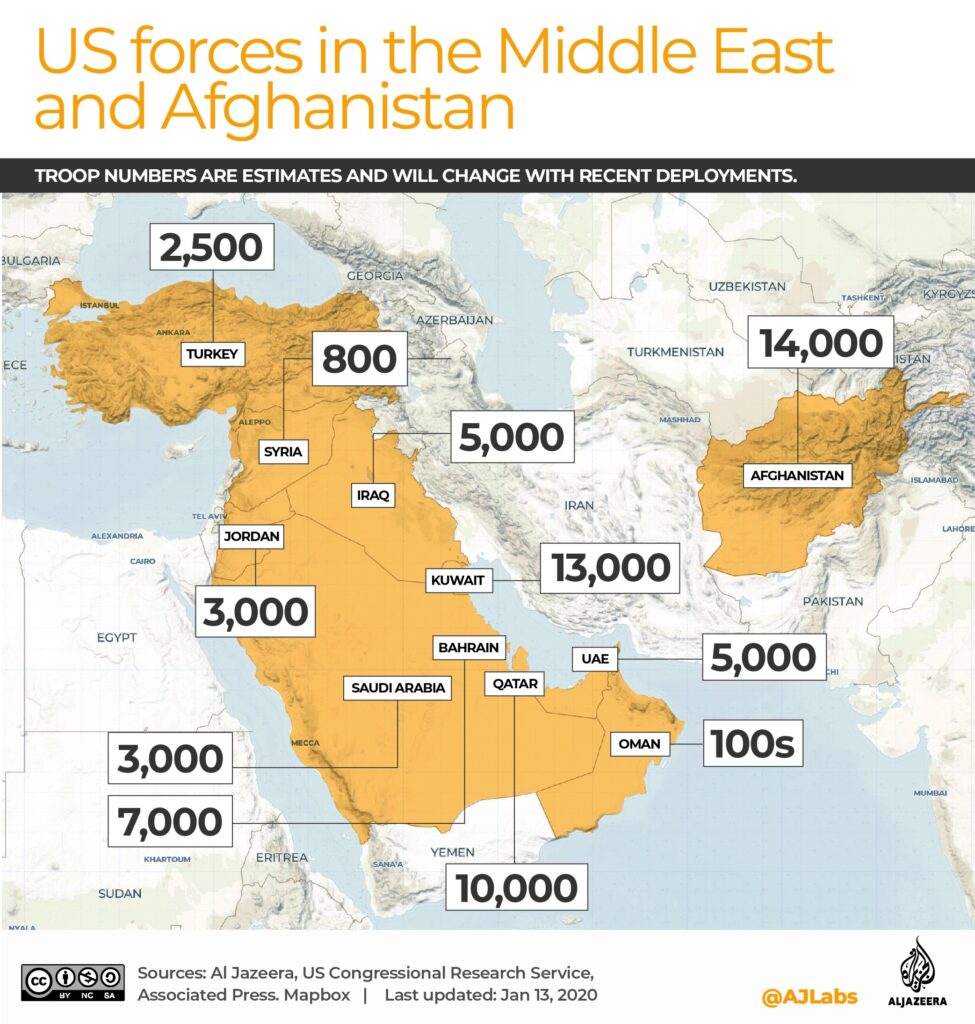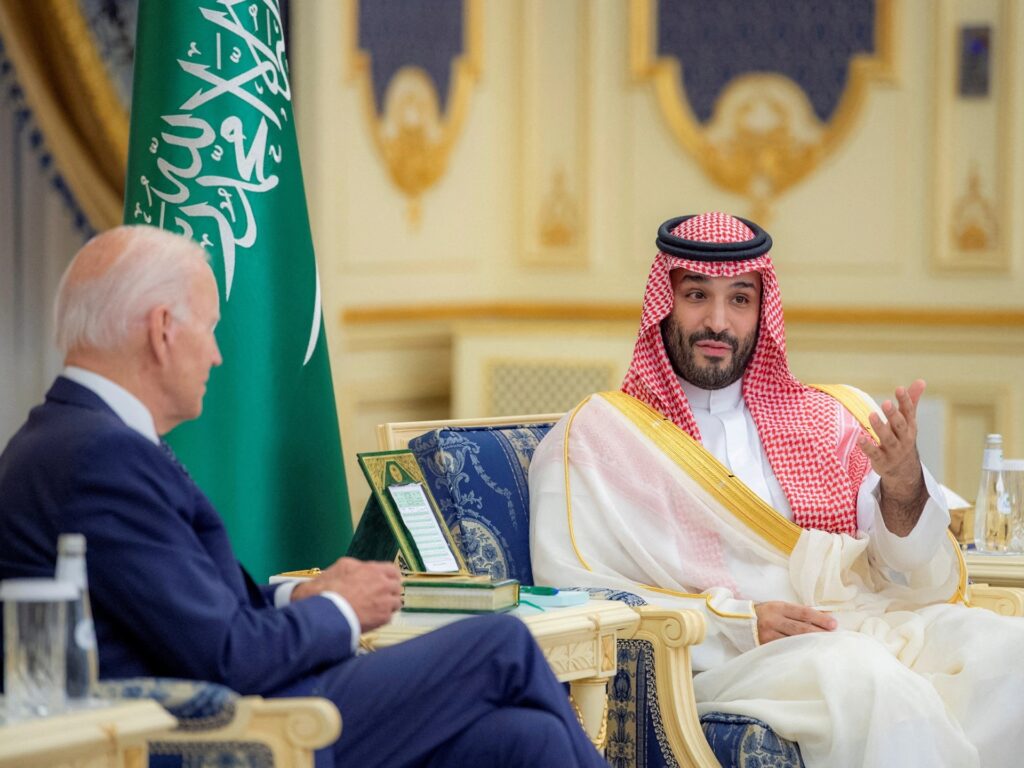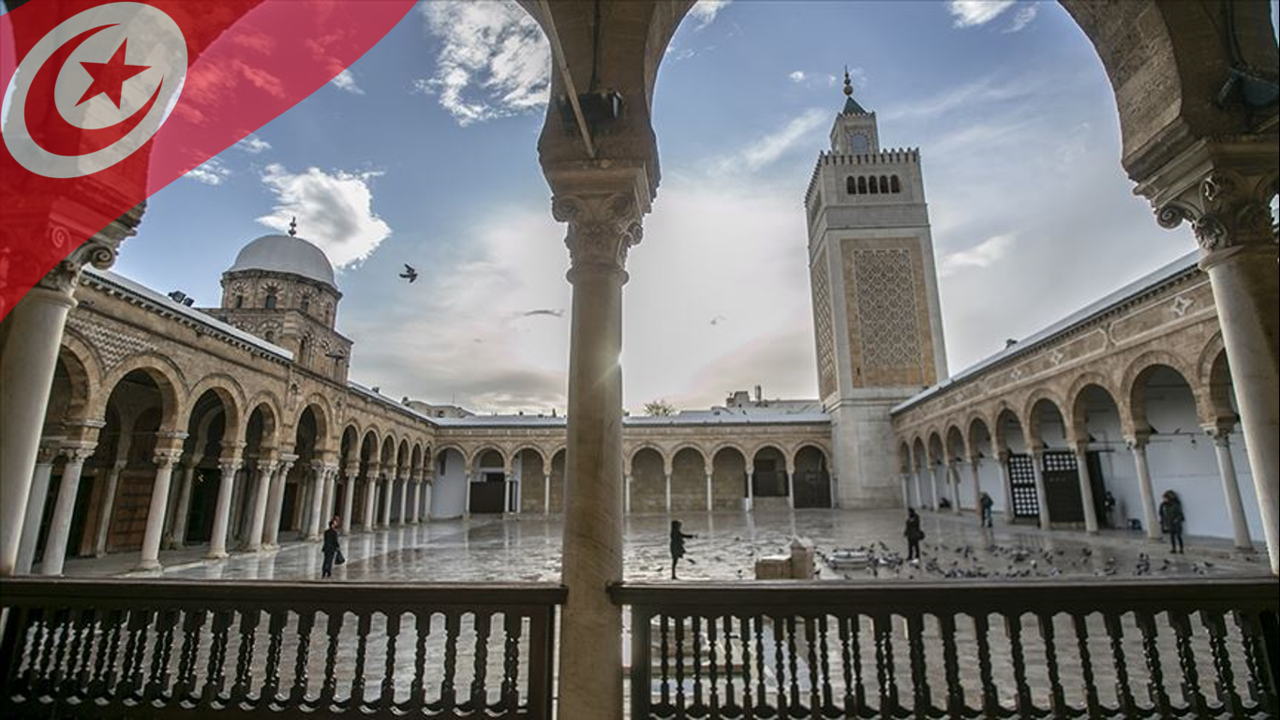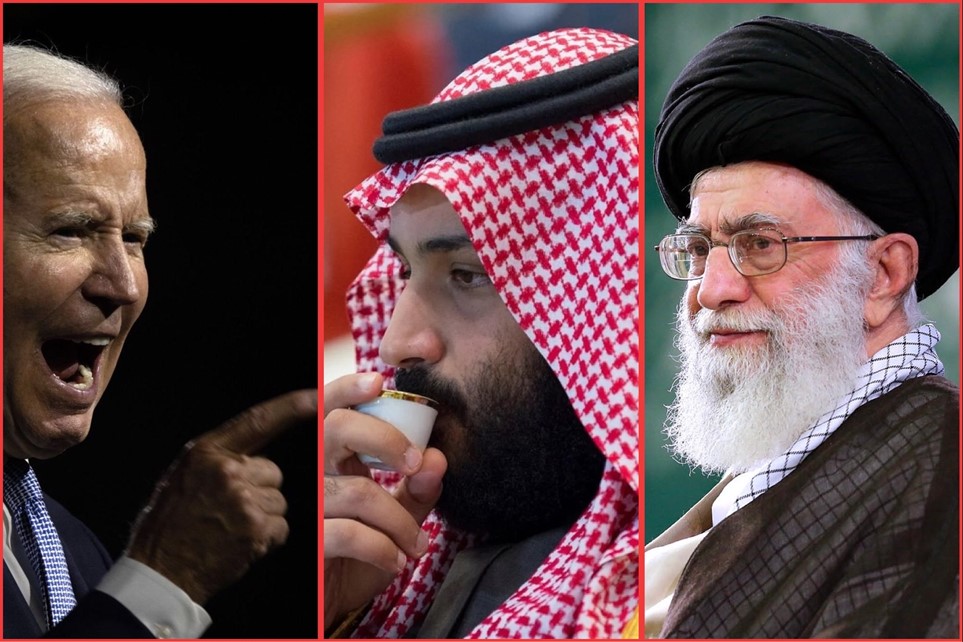The Biden administration has a mixed success so far on many fronts. As for the foreign policy in regard to the Middle East, it had two very ambiguous policies. Both with clearly failing results. The one towards Saudi Arabia, and the one towards Iran. Since the middle of the summer, it was clear that a drastic change has to be applied, otherwise, a crash will be unpreventable. And last week the two cases met a worrisome issue.
On 1 November the American Wall Street Journal posted an article allegedly citing unnamed Saudi and American officials about Iran’s intention to attack Saudi Arabia “within 48 hours, or in the close future”. Since then 48 have passed without the attack, nonetheless, the U.S. military in the region with dozens of bases in close proximity to Iran put on high alert. This high likelihood of an imminent military conflict between the U.S. – with probable Saudi involvement – and Iran was further underlined by President Biden’s remarks on 4 November in a rally hinting to “free Iran” very soon.
Yet, while it would seem that the U.S. military is gearing up for yet another military engagement in the Middle East, the picture is just not really clear. Since Biden took office he had a way more conciliatory approach towards Iran than his predecessor engaging in several rounds of talks to revive the nuclear deal. And while that is put on hold now, it is not off the agenda. On the other hand, he had a particularly rough time with the Saudi leadership, especially with Crown Prince Muḥammad ibn Salmān, whom once he vowed to treat as “a pariah” and tried to remove from power, but since the war in Ukraine broke out tried to appease. And in vain.
The relations in recent weeks turned especially bitter after Riyadh continued its gamble to disregard Washington’s requests and flirt with Russia. Biden even started to re-evaluate his relations with Saudi Arabia, which makes it curious why it now rushes to save it.
This all comes at a time when both Saudi Arabia and Iran have major internal concerns to deal with and are both on a collision course with Washington, yet their bilateral ties are better than at any time in the last decade. It is clear that this development is a threat, but it is very ambiguous who is Biden threatening.
Why would Iran attack?
Of course, if anyone asked this question from the Iranian government the answer would be: “It wouldn’t!” But that is not taken at face value in most parts of the world, especially after decades of animosity between Riyadh and Tehran and general paranoia by both parties about the other. It seems convincing around the world in general that given their mutual distrust, eventually one of them would attack the other.
The mentioned Wall Street article wraps this a more convincing general argument that since the new wave of internal disturbances in Iran, following the violent protests and crackdowns Tehran could possibly retaliate to positions it sees threats, from where these protests are organized. Iranian officials, thought solely from the Revolutionary Guards have indeed named Saudi Arabia among the possible culprits behind the organized protests and acts of vandalism since September in Iran. Just like Irbīl in Iraqi Kurdistan where Tehran has already hit back with deadly force in late September. And in that attack, even the White House admitted to the death of one American. Now the Wall Street Journal claims that a possible Iranian attack either against Irbīl, or targets within Saudi Arabia is likely, so the Iranian government could derail attention, at least internally, from the protests and unite the national spirit in light of an even bigger threat.
At first, reading that might even seem convincing. Especially now, as there are indeed many signs of a coordinated project to undermine the Iranian government from within. And on 2 November Speaker of the Iranian Parliament and veteran politician with excellent ties to the Revolutionary Guards Moḥammad Bāqer Qālībāf talked about exactly that saying the an elaborate plot was laid down by Washington, which has been foiled. At the same time, Commander of the Revolutionary Guards Major General Salāmī warned not to continue support for the protests, and here he specifically mentioned America and the Saudis.
Since the protests started in mid-September in Iran there has been a high number of attacks against government and security facilities, and indeed it has been proven that a significant number of foreigners have been apprehended following the violent attacks. However, an attack on 30 September in Zāhedān the capital of Iran’s troubled Sistan and Baluchistan province marked a turning point, as an attack allegedly connected to a foreign-sponsored separatist group killed 19 members of the security forces, including a high-level officer of the Revolutionary Guards. A similar attack happened on 25 October at the same place. From the very beginning of the protests, Tehran claimed that there are foreigners acting within the protests and they are causing the violence. On 25 September it was reported that members of the Kurdish Kōmala Movement, an offshoot of the PKK acting freely in Iraqi Kurdistan have been arrested at the protests in Northern Iran. That caused the aforementioned retaliation in Northern Iraq. Then on 16 October an attack was carried out against Tehran’s infamous Evīn prison trying to free high-ranking inmates, though the attempt failed. And on 26 October something so far unthinkable happened, a terrorist attack in the major southern city of Shiraz killing 15 civilians at a pilgrimage site. For which soon enough Dā‘iš claimed responsibility.
It caught less attention, but not much before the protests broke out Albania broke diplomatic relations with Iran and expelled all Iranian diplomats based on a cyber attack in the summer for which Tirana blames Iran. That might seem insignificant, but in fact, Albania is a very important piece in the Iranian equation, as it hosts the biggest camp of an Iranian sect-like movement, the infamous Muğāhidīn-e Halq (MEK), which in the past had a significant role in spying and assassination operations within Iran. The MEK has openly good relations with Israel, which in the recent past once again stated several times that will attack Iranian nuclear facilities, even unilaterally if it feels needed. After the protests broke out, in mid-October, the Israeli ambassador in Albania openly visited the MEK camp and had a cordial meeting with Maryam Rağavī, leader of the movement.
All in all, it is not hard to imagine that the Iranian government would sense a – real or imaginary – plot from abroad by a large network trying to undermine it. Which might provoke a response similar, to or even on a much bigger scale than what it did in Irbīl.
However, what the last four decades of the Iranian government showed, especially after the first decade of the revolutionary zeal calmed down that it is a master of diplomatic tricks and it is not in its nature to take provocations without carefully calculating the possible results. The assassination of General Qāsem Soleymānī in Iraq by the Americans is the best recent example.
In fact, this is probably the worst possible time for Iran to commit itself to such a major engagement, which potentially could plunge the whole Gulf region into an all-out war. With the West, the possibility to revive the nuclear deal is not dead. Though the Vienna talks are on hold now, and on 5 September EU Foreign Policy High Representative Josep Borrell stated that he is “less optimistic” about a quick deal the matter is still high on Tehran’s agenda. That could be a step toward lifting international sanctions at a time when Iranian oil and gas are in high demand in the global energy market. Meaning Tehran could have good leverage on international politics returning just now. While launching any major attack would cancel this policy for a long time.
On the other hand since the war in Ukraine broke out the economic and political ties have reached unprecedented zeniths with Russia, a so far very limited ally. Since Iran can serve as a crucial corridor to Russia’s export towards China and India, there are lucrative business deals to be cut, and finally, Tehran has an edge over Moscow in altering its policies in a number of key Iranian matters, from military cooperation to the Syrian settlement. It would be foolish to jeopardize these tracks in any before results, now that Russia cannot support them. Especially not militarily.
Even regionally, in the last two years, there have been numerous rounds of Saudi-Iranian reconciliation talks with Iraqi mediation in Baghdad. And by all Iraqi, Saudi and Iranian accounts these have been successful. After years of diplomatic ties being cut, there are now talks to relaunch them and Saudi Arabia has already allowed Iranian exports in. This approach is further galvanized by the fact that currently both Riyadh and Tehran have excellent and rapidly developing ties with Moscow, meaning internationally they are heading the same way. And the Iranian ties with all other Gulf countries are even better. Both Qatar and the Emirates have regular high-level meetings with the Iranian officials stating good understanding, and it is noticeable that when in the summer the idea of an Arab NATO against Iran was mentioned the Emirates rushed to deny any possibility of its lands being used against activities against Tehran. The only exception from this generally good regional equation is Bahrain, which is developing good cooperation with Israel. Which is surely taken into consideration in Tehran, but in the current American reports not even mentioned. Simply put, compared to the matters Iran is dealing with now, Bahrain is of little significance.
The fact is that launching a war against Saudi Arabia now would mean turning all foreign policy projects of the last decade around and plunging the country into a war at a time, when there are no possible allies to help, and the internal front is tenuous. All trends in the region and globally in general now favor Iran, just like the growing wedge between Washington and Riyadh. Tehran has a major interest to see this rift grow while starting a war would just unite the U.S. and Saudi Arabia once again.
Finally, what would be the game plan? It is a known maxim that no one goes to war without setting clear goals it wants to achieve when it can declare victory. But here, what would be the strategy of Iran? Either a limited strike knocking out key Saudi military and intelligence facilities, or an invasion. A limited strike would have little effect, as regardless of its success facilities can be rebuilt fast and the retaliation could be devastating. And would just increase Iran’s security problems. A full invasion is even less possible, as massive areas should have been attacked through the Gulf, for which Iran does not have the needed navy force, while there are at least ten U.S. military bases in the area.


Helping Saudi Arabia
Given the history of the pivotal strategic military relations between Saudi Arabia and the United States the latter being the prime security guarantor of the Saudi monarchy it seems fitting that in case of a major threat by Iran Washington spare no efforts to protect Riyadh and retaliate in its defense. But not so much in recent times.
Since the Saudi military campaign started in Yemen Sana’a managed to hit back several times with precision missiles at vital Saudi infrastructure. The most famous of these were the hits on Aramco facilities in September 2019. Though Sana’a claimed responsibility for these attacks, Riyadh at that time openly accused Iran of either helping the al-Ḥūtīs or launching the attacks itself from Iranian and Iraqi locations. It is noticeable that on all these occasions Washington raised concerns and expressed solidarity with Riyadh, but it actually did very little to increase the Saudi air defense or to deter Iran, or the Yemenis to repeat these hits. In other words, when an attack similar to what is suggested now did happen Washington was not in a rush to help the Saudis. Which was one of the probable factors why Riyadh started to change its policies, turning slowly towards Russia, engaging in a reconciliation process with Iran, and committing itself to a ceasefire in Yemen this year. With all its problems and its timespan officially over still holds today. So there is an understandable skepticism about how genuine this American fear of Saudi is really.
It is most curious since the Biden administration had a particularly rough time with the current Saudi leadership. Crown Prince Muḥammad ibn Salmān, the de facto ruler of the kingdom by now was an excellent ally of the Trump administration, and at that time Saudi-Iranian relations indeed plummeted, while Trump himself expressed several times a desire to attack Iran. And Washington did assassinate Iran’s top general Qāsem Soleymānī in January 2020. However, Biden has had a distinct dislike for Ibn Salmān, whom he wanted to treat as an outcast for the infamous Hāšuqğī murder. Allegedly he even promoted the idea of replacing Muḥammad ibn Salmān with another, more suitable candidate for the Saudi throne in effect meaning a regime change. As result, Ibn Salmān was weary of the Biden administration and about possible attempts to remove him.
This uneasy relationship lasted until the war in Ukraine broke out in February 2022, after which it was crucial for Washington to make the Gulf states also join the sanctions against Russia. Also to increase their energy supply to Europe, thus covering the loss of Russian output. Yet the Gulf states were reluctant to turn against Moscow, while the rulers of Saudi Arabia and the Emirates even refused to take Biden’s calls at that time. And thus the great gamble started in Saudi Arabia testing the limits of how much can Riyadh loosen the sometimes suffocatingly strong ties with Washington.
It was always supposed that eventually Riyadh must break under the American pressure and cut, or at least seriously limit its economic ties with Russia since the intricate military, intelligence, political and economical ties with the Americans are too great. There were various signs and offers by the Gulf states that soon enough oil and gas supply will be expanded to compensate for the Russian supplies, though curiously these were always long-term, not immediate plans, and kept avoiding American involvement.
That went on until the summer when finally Biden had to abandon his previous policy and meet Muḥammad ibn Salmān personally if he wanted to settle differences with Riyadh. The offer was that Biden ends a policy of isolation, practically rehabilitating Ibn Salmān on the international front, for which in exchange Ibn Salmān will convince OPEC to increase energy supplies, thus breaking the spiking prices. And here came the infamous Jeddah Summit in July, about which Biden stated several times that it is not about meeting the Saudi Crown Prince personally to change his former policy, but simply an important international summit where both of them will be present. And in the Jeddah Summit Muḥammad ibn Salmān did his best to humiliate this position, using every occasion to be in the same picture with Biden, many times acting as a personal host.

However, despite the statements of success the meeting did not result in anything tangle had by now largely forgotten. Riyadh did not change its policies towards Washington and gave no sign to increase oil production either unilaterally, or through OPEC. On 27 September a royal decree in Saudi Arabia redrew the government naming Muḥammad ibn Salmān as Deputy Prime Minister, who presided over all governmental meetings in the absence of the King. And as King Salmān is not in the best health conditions that practically means that his son took over the state. This is underlined by the fact the Deputy Prime Minister has been seldom appointed in the kingdom, while the post of Prime Minister is strictly held by the monarch. With his position secured and his international isolation ended came the real slap, and that is exactly how the Americans felt it. On 5 October at the OPEC+ meeting in Vienna, a group led by Saudi Arabia and Russia, it was agreed to cut oil production by 2 million barrels a day. Which is a massive cut, allegedly even more than the Russians asked for, further securing high energy prices for a time.
The Americans asked and hope for a significant increase, which would in turn bring prices down and cut Russian oil revenues even on the non-European markets. The contrary happened and by all accounts, Riyadh was heavily lobbying for this result.
This step infuriated the Biden administration, which with this and the Jidda Summit was clearly humiliated and led Biden to state that the relations with Riyadh will be seriously re-evaluated. Biden even stated that there will be “consequences” for Saudi Arabia for defying Washington. This is a lightly concealed threat that Washington will put pressure on the Saudis in one way or the other. The incident led to weeks of accusations and harsh statements openly between the two sides, until the Saudis simply stated to disregard the concerns. Considering that Saudi Arabia was always viewed as a practical vassal of the U.S. this is a very heavy statement, an act of defiance. And to top it all, the final statement of the Arab League Summit in Algiers held on 2-3 November defended the OPEC+ decision as “a strictly economic one”. In other words, the Saudis managed to rally Arab support for their decision, while Algeria is also on the same page, inciting broader regional defiance against the American policies. With this Washington has a revolt on its hand in a sense.
Set the main architect and protagonist of this surprising defiance, Saudi Crown Prince Muḥammad ibn Salmān was not even present at the summit in Algiers, as he excused himself even before. A curious move on the eve of his triumph, though several Gulf state leaders chose not to attend.
Who is threatened?
In light of all these details, it is very curious to asses what Wall Street Journal has claimed. First of all, an Iranian attack now against Saudi Arabia is against its interests and could not yield any benefit at a time, when it has much bigger matters at hand, has the motive to exploit the rift between Washington and Riyadh not to repair it, and could count on no allies with a vulnerable hinterland. On the other hand, the relations between the U.S. and Saudi Arabia haven’t been so tense since the oil crisis in the ‘70s.
Only recently Biden threatened “consequences” for Saudi Arabia. And at that point, we hear a claim that allegedly a massive Iranian attack is imminent. All coming from only one American newspaper very close to the White House, citing unnamed sources.
It is noticeable that Saudi sources so far have not commented on these claims at all. If there was truly a fear of a major attack, or even an invasion would be a very odd decision. Odder that on 5 November Iranian Foreign Minister Amīr ‘Abdollahiyān claimed that indirectly Americans informed Tehran that Biden’s aforementioned statements to “liberate Iran” is not an official position. This might not be true, but if it was is a very strange thing to do while preparing to go to war. It should also be pointed out that the original “within 48 hours” deadline is already over, and given the technological capabilities the Americans have, by now possessing this information they surely could have presented sufficient proof about the Iranian Army mobilizing. But there is not even any attempt for that by Washington.
All that put together the possibility of an Iranian attack against Saudi Arabia, or any other Gulf state at this point seems very low, albeit another missile strike at Irbīl is not. But then what this article tries to achieve, knowing that this source is the mouthpiece of the White House?
Can it be that this is part of yet another warning by Washington and the real target of this threat is in fact Riyadh? In case a murky incident happens after which Washington stresses a bogus claim about an Iranian attack against Saudi Arabia, and for such a scenario, the U.S. has a very long track record only even in the Middle East, the Saudi state would be powerless to evade a military conflict. Even though that is not in its interest. Simply because the Saudi public has a general paranoia about Iran and a high level of trust and favoring of the Americans, regardless of the politics. There would be a general outcry for war. If such a war was too broke out and the Americans would mobilize, the Saudi state could do little, as its army is already largely operated with American assistance. Such a war would be devastating to both Iran and Saudi Arabia, as eventually the war would deepen and increase destruction.
This is a very “conspiracy theory” fashioned hypothesis. But the U.S. has already been proven with such tricks in Iraq, as the world is still searching for Saddam’s weapons of mass destruction almost 20 years after the American invasion of Iraq. But if it is true, probably the warning is heard in Riyadh.
The coming weeks will tell, which way these possibilities develop and how Riyadh will react to the claims. Because eventually, it has to. And the best scenario is if this curios report soon becomes forgotten.


